#Valerio evangelisti
Explore tagged Tumblr posts
Text
Il Giardino della Cultura - Valerio Evangelisti
Valerio Evangelisti, lo scrittore che ha saputo unire il fantasy con la storia Volgio condivedere questo post che racconta la storia lettararia di un autore che ho amato molto: Valerio Evangelisti! Luca
View On WordPress
0 notes
Text

[x]
#dragon age#warden cousland#elanor cousland#ndo sta l'art tag#5minute sketch 2 hours of just splashing yellow everywhere lol#I miss ela I hope she's wearing a silk scarf on her neck and eating abudantly to prevent colds#abu... abu hold on lemme google it lmao#abundantly!#and don't forget your vitamin c darling eat those darn lemons!!#I've got at least five black label society songs that are so fitting I'm howling at the moon like a chihuahua#(yes I'm thinking about ela a lot lately lmao I should write an one shot w her sometime)#ela is super difficult to write tho :'#it's either a valerie solanas or a valerio evangelisti vibe and I'm in the middle screaming 'no more teeeeears'
122 notes
·
View notes
Text
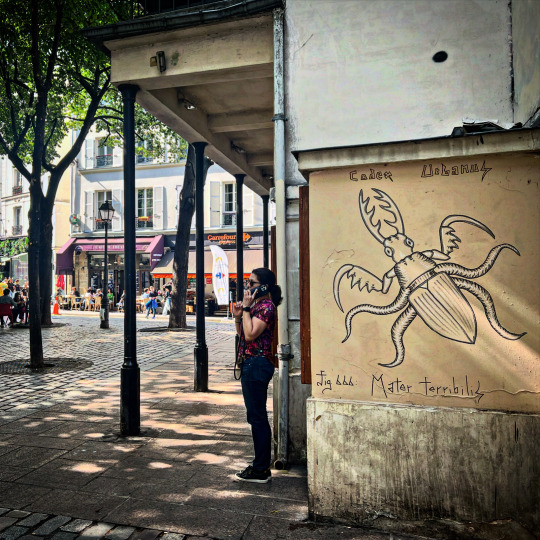
L’étrange lucane-cerf-volant mutante en hommage au roman Mater Terribilis de Valerio Evangelisti se cache toujours sur la place du théâtre de l’Atelier à Montmartre…
Vous pouvez également la retrouver sur le livre collector sorti par les édtions la Volte pour leur 20 ans et dans lequel 20 artistes ont illustré 20 livres du catalogue de la maison d’édition. Il est même disponible en pré-commande sur le lien suivant…
#streetart#graffiti#codex#street art#arturbain#picoftheday#vandal#streetartparis#paris graffiti#montmartre#codexurbanus#codex urbanus
4 notes
·
View notes
Link
Qualche giorno fa, scorrendo la timeline di un social, mi è capitato di rivedere la copertina di Cerudek di Valerio Evangelisti, edizione Urania del 1998. Conservo ancora gelosamente una copia di quel libro, a mio avviso l’apice della produzione di Evangelisti – scomparso nell’aprile del 2022 –, un autore da leggere e rileggere per chi apprezza la Fantascienza (e non solo). Il suo romanzo d’esordio, Nicolas Eymerich, inquisitore, è diventato un classico e mi stupisce che non sia stato mai portato al cinema (la Rai aveva opzionato il progetto per poi affossarlo).
La storia di Nicolas Eymerich, inquisitore, per chi non la conoscesse (spero pochissimi), è un intreccio di tre linee temporali: nella metà del Trecento l’indagine dell’inquisitore Eymerich alla ricerca di una setta di neopagani adoratori della dea Diana, nel XX secolo la nascita e lo sviluppo di una rivoluzionaria teoria scientifica del fisico Marcus Frullifer capace di travalicare i confini dello spazio, del tempo e della materia, e infine, nel XXII secolo, l’avventura dell’astronave Malpertuis alla scoperta di un pianeta su cui sopravvivono le antiche divinità pagane.
I piani temporali del romanzo s’influenzano vicendevolmente in una concezione del tempo (non solo narrativo) così vertiginosa da lasciare senza parole.
La stessa formula a trame multiple verrà ripresa in tutti i romanzi della serie “Eymerich”, qualcuno riuscito meglio di altri, ma tutti a livelli altissimi. Unica costante l’inquisitore, padre Nicolas, quel meraviglioso antieroe così tormentato e crudele, un fanatico animato da una fede incrollabile, l’incarnazione di una Chiesa molto più attenta al profano che al sacro.
Evangelisti era, allo stesso tempo, “padre” e prigioniero di Eymerich. Diverse volte ha tentato di liberarsi del domenicano senza mai riuscirci. Avrebbe forse voluto dedicarsi all’altra grande sua passione letteraria: la storia del movimento sindacale internazionale, ma Eymerich non mollava la presa.
Se mai esistesse, da qualche parte nell’universo, un pianeta dove si manifestano i grandi protagonisti della letteratura, sicuramente là ci sarebbe Nicolas Eymerich.
Vincitore per un soffio
La storia editoriale di Eymerich avrebbe potuto essere molto diversa da quella che conosciamo. L’idea iniziale della serie non aveva nulla di fantascientifico, si trattava di una storia gotica ambientata nella metà del Trecento sulle avventure di uno spietato inquisitore.
L’idea che le divinità del passato potessero sopravvivere solo grazie alla fede dei credenti veniva dal romanzo Malpertuis di Jean Rey (pubblicato in Italia da Agenzia Alcatraz), Lo svolgimento della trama però abbandonava l’atmosfera onirica di Rey per calarsi in un contesto di realismo magico assolutamente unico nel panorama letterario italiano. Il funzionamento e le dinamiche del culto dei neopagani combattuti da Eymerich ricalca quello degli adoratori di Diana praticato nel santuario della dea sulle rive del lago di Nemi, ad Ariccia e descritto nel contestato Il ramo d’oro di James G. Frazer (l’ultima edizione italiana è del 2012, pubblicata da Bollati Boringhieri).
Ma tutto questo non bastava per vincere il Premio Urania del 1993 al quale Evangelisti partecipava con Nicolas Eymerich, inquisitore. La giuria era combattuta: dov’era la Fantascienza in quel meraviglioso romanzo?
La redazione di Urania, all’epoca guidata dal compianto Giuseppe Lippi, intervenne forzando la mano. Consigliò a Evangelisti di contaminare la trama gotica con elementi sci–fi assenti nella prima stesura. Il resto è storia.
Un genere completo da usare con coraggio
Evangelisti sosteneva che la Fantascienza fosse il più completo tra i generi letterari, capace di inglobare qualsiasi altro genere e, per questo motivo, estremamente duttile e adattabile alle esigenze degli scrittori. Le sue in particolare erano prima di tutto politiche. I romanzi di Evangelisti raccontavano le sue paure e il timore che la società prendesse la strada sbagliata imboccando il vicolo cieco della dittatura.
Convinto comunista, Evangelisti credeva nella letteratura militante ma più di tutto credeva nella militanza tout court, era instancabile nella sua attività letteraria così come in quella politica. Un atteggiamento che, probabilmente, gli ha fruttato diverse antipatie. La critica sociale era evidente nei suoi romanzi, non si preoccupava di nasconderla in alcun modo, un approccio rarissimo tra gli autori italiani di Fantascienza esperti, allora come oggi, nel dimostrarsi apolitici.
Questo modo di essere scrittore di un genere considerato di puro intrattenimento, e allo stesso tempo intellettuale impegnato, mi piaceva moltissimo e fu il motivo per cui, nel lontano 2009 decisi di contattarlo per chiedergli pareri sul progetto di romanzo collettivo gotico che curavo. Nonostante il mio lavoro fosse a metà strada tra imbarazzante e tremendo, con grande generosità mi diede moltissimi consigli utili. In una delle mail che ci scambiavamo, mi parlò della sua terribile malattia scoperta per caso dal dentista e raccontata in seguito nel libro Day Ospital (Giunti editore). Lo fece così, come se fosse stata una notizia come un’altra, l’aveva detto a me e forse a tutti quelli che gli avevano chiesto, senza sapere, come stava. Anche in quell’occasione, forse senza rendersene conto, mostrandomi come affrontava la paura di morire, mi diede il consiglio più utile di tutti.
0 notes
Link
0 notes
Text
Valerio Evangelisti e l’insurrezione immaginaria
http://dlvr.it/SqYhyH
1 note
·
View note
Photo

Nel 2014 scrivevo per Finzioni Magazine e mi venne chiesto di preparare un “coccodrillo” per Valerio Evangelisti. Passò molto tempo da allora e per fortuna non fu mai necessario pubblicarlo. Oggi ho scavato nella casella di posta, ritrovando quel file word e riscoprendo passaggi, citazioni, che forse vale poco ma vale mettere qui o da qualche altra parte, anche e soprattutto per chi non conosce Valerio Evangelisti e vuole semplicemente iniziare a leggerlo, a scoprire quanto è stato importante per la letteratura e quanti mondi ha aperto e potrà ancora aprire in noi.
[…]
Nel 1994 è uscito il suo primo romanzo, "Nicolas Eymerich, inquisitore", vincitore del Premio Urania, che ha dato vita al Ciclo di Eymerich, inquisitore domenicano realmente esistito, nato nel 1320 in Catalogna e protagonista di ben otto romanzi. Del suo personaggio più famoso, Evangelisti azzardò una volta un parallelismo: «Sono scorbutico e asociale. Sono aggressivo, e questo è legato all’asocialità. Ho amplificato tutto questo aspetto della mia anima nel personaggio Eymerich, che rappresenta il peggio di me. Prendi Eymerich, dividilo per dieci e ci trovi me». Spietato, inflessibile, tormentato, perfido ma senza mai essere meschino, l'inquisitore domenicano è stato la figura in cui, romanzo dopo romanzo, Evangelisti ha trasferito tutto se stesso, traslocando nel suo personaggio.
«Sfuggire alle definizioni era fin dall'inizio il mio obiettivo». Da questa frase si può partire per descrivere la solida parabola letteraria di Valerio Evangelisti. Da qui sboccia e si espande, lucida, senza definizioni, ma compatta, definitiva, perché nessuno come lui negli ultimi decenni ha saputo legare insieme fantasy, fantascienza e horror al rigore della documentazione (la Storia, il suo primo amore), come se la letteratura dovesse avere coscienza di sé e di quello che il mondo ha da raccontare, prima di poter provare a cogliere quello che vuole essere. È così che la parola diventa opposizione al precostituito, volontà di trasformazione della realtà.
Prima ancora che un acclamato autore di bestseller, Valerio Evangelisti è stato il demiurgo di un immaginario antagonista, capace di andare oltre la letteratura di genere: «Devo dire che il mio obiettivo finale non era tanto, la commistione, quanto l'esplosione». Oltre le contaminazioni, Evangelisti ha dato alla narrativa una nuova, sorprendente vitalità senza aggettivi, dove il fantastico è un'arma tanto potente quanto rara, se impugnata con consapevolezza. Se si utilizza cioè, per addestrarsi all'evasione dei sogni che ci vengono imposti. L'arma della fantascienza è sognare ciò che ci è stato proibito sognare, dall'appiattimento totale e unilaterale della nostra esistenza, dagli schemi che vogliono recintare ogni possibilità di trasformazione per cui nasce, in fondo, la letteratura. Uno dei motivi che stanno alla base della fondazione di Carmilla, la rivista letteraria che ancora oggi continua il suo percorso online. Ecco, c'è un valore politico, nella letteratura di Valerio Evangelisti, c'è la volontà di poter sognare di essere tutto: «Quando si smette di guardare a un futuro diverso non si conquista più niente, perché se chiedi l’oggi ti danno l’oggi e se chiedi il futuro ti danno parte dell’oggi. Il futuro è tuo se hai l’idea che ci sia, un futuro. Appiattirsi sul presente porta a una sconfitta dietro l’altra».
Ci piace chiudere così, con le parole con cui Tiziano Scarpa descriveva Valerio Evangelisti e la sua scrittura, a cui il tempo riserverà, ne siamo sicuri, il sentiero della leggenda: «La sua scrittura è al servizio del racconto, dispone di toni e colori molto vari, ma non è mai gigiona o vanitosa, è solida e sorvegliata, serve per sprigionare suoni e odori e brividi, dibattiti teologici come duelli all'ultimo sangue, metafisiche che fanno a scazzottate, incubi a occhi spalancati. Sembra scritto da sempre, e verrà letto per sempre, come Jules Verne, Emilio Salgari, Agatha Christie, Isaac Asimov».
3 notes
·
View notes
Text
Pirates books
Pirate Latitudes (2009) by Michael Crichton
I enjoyed this book, a crew of people with special abilities that recals Ocean Eleven, but I didn't liked the main protagonist ( too perfect, too invincible) and the way in which Crichton portrayed female characters: very sexulized and objectified, I think that it could be appropriate for the age in which the book is setted, but doesn't make me comfortable.
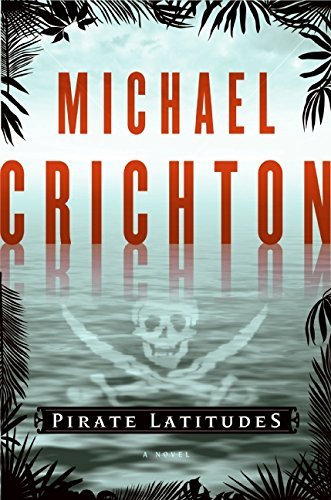
Jamaica in 1665 is a rough outpost of the English crown, a minor colony holding out against the vast supremacy of the Spanish empire. Port Royal, Jamaica′s capital, a cut-throat town of taverns, grog shops, and bawdy houses, is devoid of London′s luxuries; life here can end swiftly with dysentery or a dagger in your back. But for Captain Charles Hunter it is a life that can also lead to riches, if he abides by the island′s code. In the name of His Majesty King Charles II of England, gold in Spanish hands is gold for the taking. And law in the New World is made by those who take it into their hands.
Word in port is that the Spanish treasure galleon El Trinidad, fresh from New Spain, is stalled in nearby Matanceros harbor awaiting repairs. Heavily fortified, the impregnable Spanish outpost is guarded by the blood-swiller Cazalla, a favorite commander of King Philip IV himself. With the governor′s backing, Hunter assembles a roughneck crew to infiltrate the enemy island and commandeer the galleon, along with its fortune in Spanish gold. The raid is as perilous as the bloody legends of Matanceros suggest, and Hunter will lose more than one man before he finds himself on the island′s shores, where dense jungle and the firepower of Spanish infantry are all that stand between him and the treasure.
With the help of his cunning crew, Hunter hijacks El Trinidad and escapes the deadly clutches of Cazalla, leaving plenty of carnage in his wake. But his troubles have just begun. . . .
Pirate Latitudes is a fantastically enjoyable and light-hearted adventure yarn about pirates and profiteers in 17th century Jamaica. It is deeply researched and full of lively historical detail. It shows Crichton going back to the territory he explored in novels such as The Great Train Robbery – old-fashioned entertainment, Pirate Latitudes is Michael Crichton at his best: a rollicking adventure tale pulsing with relentless action, crackling atmosphere, and heart-pounding suspense.
Pirate Cycle by Valerio Evangelisti
Valerio Evangelisti is one of the greatest Italian historical fiction alive. Evangelisti is great into re-creating historical settings and non-likable characters as protagonist. Evangelisti doesn't use the stereotypes of over-power anti-horoes typical of us writers, Evangelisti portrays the worst part of human nature that is, for me, more close to reality.
Evangelisti does not introduce to the reader the romanticized versione of pirats, but he makes clear to the reader that pirates in reality were bloody, cruel criminals.
Evangelisti also evidences how pirates consider women as sexual objects rather than persons, but he also subvertes this topic and in the end the male protagonist realizes that women are real persons with their feelings and thoughts in the worst way possible.
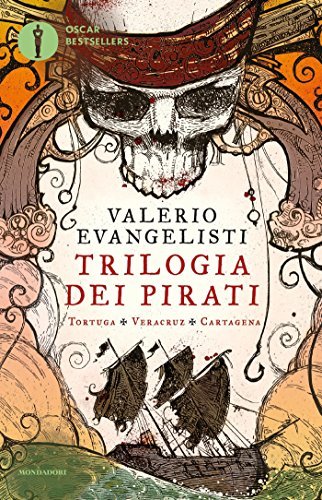
1. Tortuga (2008)
In 1685, the days of the pirates grouped in the brotherhood known as the Brothers of the Coast, obedient to the king of France, are numbered. Louis XIV made peace with Spain and the raids of the Caribbean freebooters, based on the island of Tortuga (La Tortue), have become uncomfortable. A new governor has taken possession of the island and intends to normalize it.
It is in this situation that a Portuguese boatswain, Rogério de Campos, a former Jesuit with a troubled past, is captured by the pirate commander Lorencillo and enlisted by force. He finds himself living among disconcerting people, with a free and undisciplined life and unpredictable outbursts of cruelty.
Slowly, Rogério is conquered by the sometimes fraternal, sometimes ferocious rules of that singular community. His is a progressive descent into hell - a hell, however, founded on the unleashing of instincts, and in its own way "democratic". Tortuga itself, the hideout of the Filibusta faithful in theory to France, has the appearance of a republic, yet it is based on the most rigid slavery.
Rogério, who has passed into the service of the grim knight De Grammont, takes part in the last great adventure of the Tortuga pirates: the bloody capture of the city of Campeche on the Mexican coast. The only light, in that infernal conquest, is the love of the Portuguese for an African slave to whom De Grammont himself is attracted. It will be the episode that will turn the return journey into tragedy.
Between boardings, episodes of ferocity, moments of camaraderie, on overloaded vessels where blood mixes with sweat, a perception torments Rogério. A new society is being founded in the Caribbean. Yes, but which one? What is the prelude to the end of Tortuga?
2. Veracruz (2009)
We are in 1683, two years before the events narrated in the novel "Tortuga". The knight Michel de Grammont, the last legendary leader of the Brothers of the Coast that infest the Caribbean Sea, proposes to his companions a crazy idea: to conquer and plunder Veracruz, the most important city of New Spain, considered impregnable. An enterprise also condemned by that crown of France of which the pirates are said to be agents, which signed an ephemeral peace treaty with the Spaniards. The largest fleet that has sailed Central American waters sets sail from the island of Roatàn. Reckless, cynical men, broken at all cruelty. If there is an ideal, it is to get rich quickly and squander everything in the few years of life that remain. A painting by the Fratelli della Costa at the same time crudely realistic and objectively picturesque, but seriously documented. Almost the antithesis of Salgarian romanticism, and of the abundant non-fiction that read the epic of the Tortuga pirates in the key of libertarian revolt. The environmental background are suggestive islets, crystalline seas, white sands, coastal cities protected by coral reefs. Who said hell has dark colors?
3. Cartagena (2012)
In 1697 Louis XIV sent an imposing fleet against Cartagena, in present-day Colombia: one of the richest cities of the Spanish overseas empire, considered impregnable. Admiral De Pointis, however, needs the help of the Filibusta to navigate the Caribbean. Except that the Tortuga was abandoned and the surviving Costa Brothers scattered over the mountains of the island of Hispaniola. Whoever manages to get them together is Governor Ducasse, a former slaver, a great scoundrel but in some ways elevated, fearless adventurer. The capture of Cartagena will see the tension grow between the noble De Pointis and the plebeian Ducasse, between the Brothers della Costa and the regular army; up to the open rebellion of the freebooters against the arrogance of an aristocracy that even in France is beginning to be questioned. It will be the last act of the brotherhood of outlaws that on the island of Tortuga had taken shape and terrorized the Caribbean for almost fifty years. However, the Fratelli della Costa will not disappear, but will be called to a different destiny...
Brethren of the Coast by James L. Nelson
Another US author that use the typical thrope of the annoying perfect male protagonist. Marlow main goal is being accepted by Virginia well-to-do society and this fails to make him an appreciable person, also he is not portrayed as racist as the other characters and for that age seems to be too unconventional to be belivable. Elizabeth, Marlowe's love interest, is a Penelope, lured by rich bachelors, but she doesn't have any of the Greek lady's intelligence. Elizabeth is the classical damsel in distress that needs to be protected by an obsessive lover. Their love affair is forced and born from obsession and selfish bourgeois interest. Elizabeth is a former prostitute but can read, is well-educated, has the proper behavior of a lady and is bothered by Marlowe's low-class manners, and that's make her unbelievable as character.
However, I enjoyed a lot the pirate Leroy, the main antagonist of the first book, completely crazy, cruel and out-of-control for his alcoholism and madness caused by siphilis, and the righteous admiral, that recalls a lot Lord Curter Beckett, of the third one.
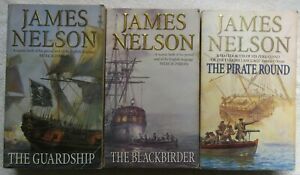
1. The Guardship (2000)
Shortly after Thomas Marlowe's arrival in Williamsburg, Virginia, all in that newfound capital city are speaking his name. With the bounty from his years as a pirate--a life he intends to renounce and keep forever secret--he purchases a fine plantation from a striking young widow, and soon after kills the favorite son of one of Virginia's most powerful clans while defending her honor. But it is a daring feat of remarkable cunning that truly sets local tongues wagging: a stunning move that wins Marlowe command of Plymouth Prize, the colony's decrepit guardship.
But even as the enigmatic Marlowe bravely leads the King's sailors in bloody pitched battle against the cutthroats who infest the waters off Virginia's shores, a threat from his illicit past looms on the horizon that could doom Marlowe and his plans. Jean-Pierre LeRois, captain of the Vengeance--a brigand notorious even among other brigands for his violence and debauchery--plots to seize the colony's wealth, forcing Marlowe to choose between losing all or facing the one man he fears. Only an explosive confrontation on the open sea can determine whether the Chesapeake will be ruled by the crown or the Brethren of the Coast.
2. The Blackbirder (2001)
In a blind rage, King James, ex-slave and now Marlowe's comrade in arms, slaughters the crew of a slave ship and makes himself the most wanted man in Virginia. The governor gives Marlowe a choice: Hunt James down and bring him back to hang or lose everything Marlowe has built for himself and his wife, Elizabeth.
Marlowe sets out in pursuit of the ex-slave turned pirate, struggling to maintain control over his crew -- rough privateers who care only for plunder -- and following James's trail of destruction. But Marlowe is not James's only threat, as factions aboard James's own ship vie for control and betrayal stalks him to the shores of Africa.
3. The Pirate Round (2002)
In 1706, war still rages in Europe, and the tobacco planters of the Virginia colony's Tidewater struggle against shrinking markets and pirates lurking off the coast. But American seafarers have found a new source of wealth: the Indian Ocean and ships carrying fabulous treasure to the great mogul of India.
Faced with ruin, Thomas Marlowe is determined to find a way to the riches of the East. Carrying his crop of tobacco in his privateer, Elizabeth Galley, he secretly plans to continue on to the Indian Ocean to hunt the mogul's ships. But Marlowe does not know that he is sailing into a triangle of hatred and vengeance -- a rendezvous with two bitter enemies from his past. Ultimately, none will emerge unscathed from the blood and thunder, the treachery and danger of sailing.
“Martin Silver Eye Trilogy” by Matilde Asensi
I love Matilde Asensi. She is one of my favorite writers and it is important to mention that her character is the only female pirate of the list. Catalina Solís is a brave woman that find herself to become a pirate, even if she was educated to be a good wife and a respectable lady. A fierce and complex character, completely different from the wood-figures with no shades of personality created by Crichton and Nelson, Catalina is forced by disgraces to put in discussion all her own convictions and becames an hero on her own. Catalina Solís' serie has a special place in my heart.
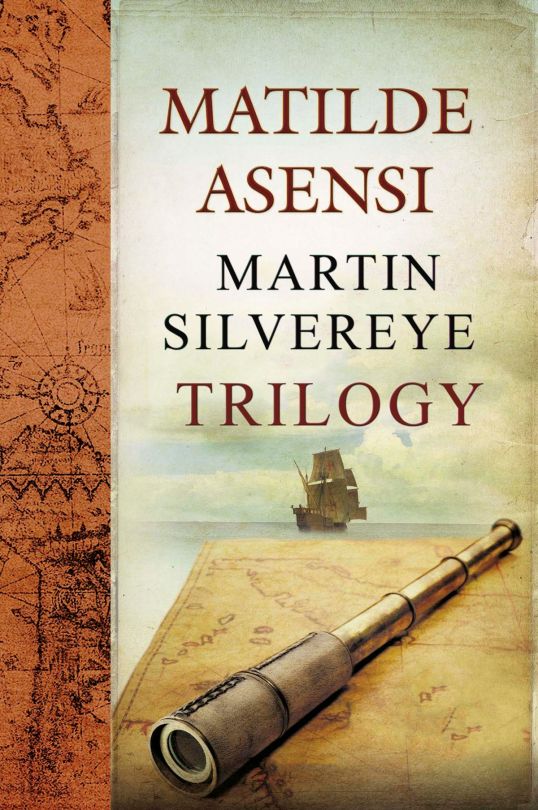
1. Firm ground (2007)
Throughout her bibliography, Matilde Asensi had addressed the historical mysteries of the Amazon jungle, China or medieval Europe, but she still had a pending framework: travel to America during the seventeenth century. Known as the Martín Ojo de Plata trilogy, or the great Spanish Golden Age Saga, Tierra Firme became the first volume of a new challenge for the author. There is the story of a woman, Catalina Solís, who must adopt the personality of her brother Martín, killed by some English pirates during an expedition to the New World. After spending two years on a desert island, Catalina becomes Martín Ojo de Plata, one of the most vengeful smugglers in the Caribbean.
2. Vengeance in Seville (2010)
After the adventures of Firm Ground, Catalina Solís returned to Spain in 1607, more specifically to the city of Seville, where she proposed to assassinate the Curvo, an important family of merchants from the New World. A book that serves as a great testimony of a time as miserable and splendid as was the Spanish Golden Age.
3. The conspiracy of Cortés (2012)
Annihilating the Curvo becomes Catalina Solís' motive to unmask the merchant family, this time from the New World. The key piece of the story falls on the treasure map of Hernán Cortés, through which the Curvos seek to overthrow the king of Spain. An epic finishing touch for the intense journey that Asensi proposes to us with his only trilogy so far.
Check my GoodReads for more: [X]
#vavuskapakage#pirates#pirate#books#book#bookshelves#adventure books#Matilde asensi#Martin Silver Eye Trilogy#Michael Crichton#Pirate Latitudes#James L. Nelson#Valerio evangelisti#vavuskabooks
18 notes
·
View notes
Text
Valerio Evangelisti - Gocce nere
Valerio Evangelisti – Gocce nere
Dalla seconda di copertina In un futuro non troppo lontano, un regime informatico globale governa la vita dei cittadini attraverso il Vortex, una gigantesca stazione orbitale che per conto dell’ONU gestisce tutte le reti di informazione. A combattere questa forma di dittatura sono solo alcuni nuclei di guerriglieri sparsi per il mondo, che hanno creato una loro rete di comunicazione denominata…
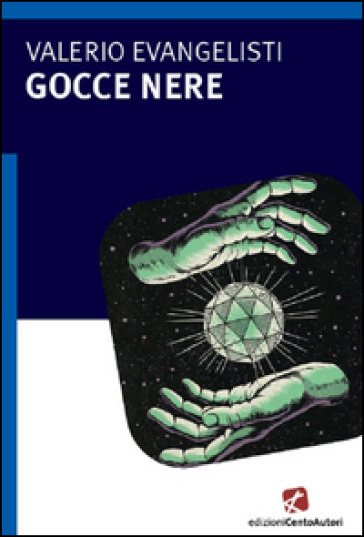
View On WordPress
0 notes
Text
Predicator veridicus, inquisitor intrepidus et doctor egregius (in memoria di Valerio Evangelisti, 20/6/1952-18/4/2022) — Venerato Maestro Oppure
Predicator veridicus, inquisitor intrepidus et doctor egregius (in memoria di Valerio Evangelisti, 20/6/1952-18/4/2022) — Venerato Maestro Oppure
“Valerio Evangelisti è nato a Bologna nel 1952. Laureato in scienze politiche, di professione fa il funzionario del fisco. È uomo dagli svariati interessi: il computer, il cinema (predilige i film fantastici, ovviamente), la storia, lo scrivere. Nel tempo libero, funge anche da direttore della rivista Progetto memoria – La comune, un archivio aperiodico di […]Predicator veridicus, inquisitor…

View On WordPress
0 notes
Photo
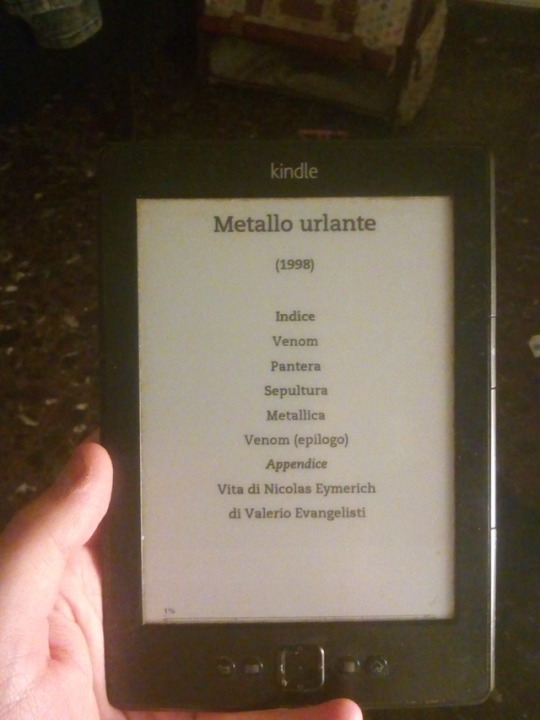
questo libro andrebbe letto anche solo per i titoli dei racconti. la saga di per sé è tanta roba. grazie ancora @heresiae per avermela fatta involontariamente conoscere
#venom#metallica#sepultura#pantera#metallo urlante#eymerich#valerio evangelisti#metalhead#ringraziamenti
15 notes
·
View notes
Quote
Da sempre la solitudine era stata il suo conforto, il suo momento di più intima gioia e di libertà interiore.
Valerio Evangelisti, Le catene di Eymerich
#citazione#citazione libro#quotes#book quotes#valerio evangelisti#in lettura#leggere#lettura#lettrici#lettrice#lettori#lettore#blog libri#booklr
15 notes
·
View notes
Photo

Qui si legge.
#Pirati#valerio evangelisti#Libro#Libri#Pirate#Pirates#Book#Books#Storia#Story#Romanzo#Romance#Tortuga#veracruz#cartagena
2 notes
·
View notes
Text
Valerio Evangelisti e l’insurrezione immaginaria
http://dlvr.it/SqYhvp
0 notes
Text

Stamattina, presso il piccolo cimitero della frazione Casigno, nell'appennino bolognese, si sono tenuti i funerali dello scrittore Valerio Evangelisti. A salutarlo, c'erano compagne e compagni di viaggio, di lotta politica e di consuetudine umana, che hanno intonato i canti fraterni e sororali. Scrittori presenti: il collettivo Wu Ming, Luigi Lollini, Wolf Bukowski. Io c'ero e ci sarò sempre, Valerio Evangelisti c'era e ci sarà sempre. Prossimamente vorrei intervenire sulla scrittura del Magister, per fissare alcuni punti non rinnegabili della letteratura che Evangelisti ha praticato con rigore impressionante e profondità a tratti impareggiabile. Ci guidano le stelle.
Giuseppe Genna
19 notes
·
View notes
Text
Una delle cose più divertenti che raccontava Valerio Evangelisti erano i tentativi di vari produttori cinematografici o televisivi italiani di fare una versione live action di Eymerich, che si scontravano però con il fatto che il protagonista non solo fosse un “cattivo”, ma pure un “cattivo” appartenente alla Chiesa, culminati nella sublime richiesta “ma se invece fosse un inquisitore privato, uno che lavora al di fuori della Chiesa?”
14 notes
·
View notes